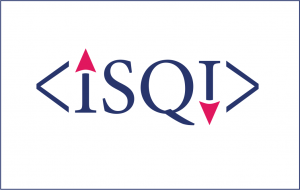ISQI
-

Seminarium ISQI - Dr. Kirill Rivkin
Spin Optics: refractive index and microscopy Speaker: Dr. Kirill Rivkin (RKMAG Corporation, Delaware, USA) Date, Time: 23.01, 15:00 - 16:00 Location: Link to MS Teams (on-line seminar) Introducing the notion of magnetic refractive index allows one to reproduce the majority of optical experiments and devices as spin wave based, i.e. ...
23.01.202523.01 Czw. -

Seminarium ISQI - Aleksander Kaczmarek
Speaker: Aleksander Kaczmarek (Wrocław University of Science and Technology) Date, Time: 16.01, 15:00 - 16:00 https://isik.amu.edu.pl/seminars/aleksander-kaczmarek-wroclaw-university-of-science-and-technology/
16.01.202516.01 Czw. -

Seminarium ISQI - Dr Javid Naikoo
Speaker: Dr Javid Naikoo (Institute of Spintronic and Quantum Information) Date, Time: 09.01, 15:00 - 16:00 https://isik.amu.edu.pl/seminars/multiparameter-estimation-perspective-on-non-hermitian-singularity-enhanced-sensingdr-javid-naikoo-institute-of-spintronic-and-quantum-information/
9.01.202509.01 Czw. -

Seminarium ISQI - Prof. Dagomir Kaszlikowski
Local Simulation of Quantum Non-locality with Negative Bits Speaker: Prof. Dagomir Kaszlikowski (National University of Singapore) Date, Time: 19.12, 15:00 - 16:00 MS Teams link We propose a simple simulation of nonlocal quantum correlations among two qubits using a local hidden variable source with a positive probability distribution, given that ...
19.12.202419.12 Czw. -

Seminarium ISQI - Prof. Gediminas Juzeliūnas
Squeezing of spin states for ultracold atoms Speaker: Prof. Gediminas Juzeliūnas (Institute of Theoretical Physics and Astronomy, Vilnius University, Vilnius, Lithuania) Date, Time: 12.12, 15:00 - 16:00 Abstract: In the initial part of the talk there will be a background material on individual and collective spins, collective spin states and ...
12.12.2024 - 12.12.2024od 12.12 Czw.do 12.12 Czw. -

Seminarium ISQI - dr Gabriel Ruffolo
Anti-Bell Scenario Speaker: dr Gabriel Ruffolo (Universidade Estadual de Campinas, Sao Paulo, Brazil) Date, Time: 28.11, 15:00 - 16:00 Location:hybrid meetnig (room 16), link (MSTeams) >>> In 1964, John S. Bell introduced a groundbreaking approach to studying the hypothesis of Local Realism in physical systems. In his seminal paper, Bell ...
28.11.202428.11 Czw. -

Seminarium ISQI - dr Paweł Gruszecki
Spin wave dynamics in thin films with perpendicular anisotropy Speaker: Dr Paweł Gruszecki (Institute of Spintronics and Quantum Information) Date, Time: 14.11, 15:00 Perpendicular Magnetic Anisotropy (PMA) in thin ferromagnetic films at low magnetic fields may allow the formation of magnetic domain patterns with magnetization directed perpendicular to the surface. ...
14.11.202414.11 Czw. -

Seminarium ISQI - Prof. Olena Gomonay
Spin waves in an altermagnet: between ferro- and antiferro Date, Time: 07.11, 15:00 - 16:00 Speaker: Prof. Olena Gomonay (INSPIRE, Johannes Gutenberg-Universität Mainz) Location:Link to MS Teams The recently introduced new class of magnetic materials, altermagnets, combine the large spin splitting of electronic bands typical of ferromagnets with the fast ...
7.11.202407.11 Czw. -

Seminarium ISQI - Prof. Piotr Chudziński
On the edge of Mott(ness): Li0.9Mo6O17 , a curious quasi-1D material that sometimes superconducts Speaker: Prof. Piotr Chudziński (Institute of Fundamental Technological Research, PAS) Date, Time: 24.10, 15:00 - 16:00 In the first part of my talk I will address a question: what happens when electrons’ motion becomes confined to ...
24.10.202424.10 Czw. -

Seminarium ISQI - Dr. Antonio Mandarino
Study of quantum systems with classical and quantum machine learning Speaker: Dr. Antonio Mandarino (Department of Physics, University of Milan) Date, Time: 10.10, 15:00 - 16:00 Machine learning either classical or quantum offers a promising advantage in studyingcritical quantum systems. It allows us to study the dynamics of non-analytical solvable ...
10.10.202410.10 Czw.